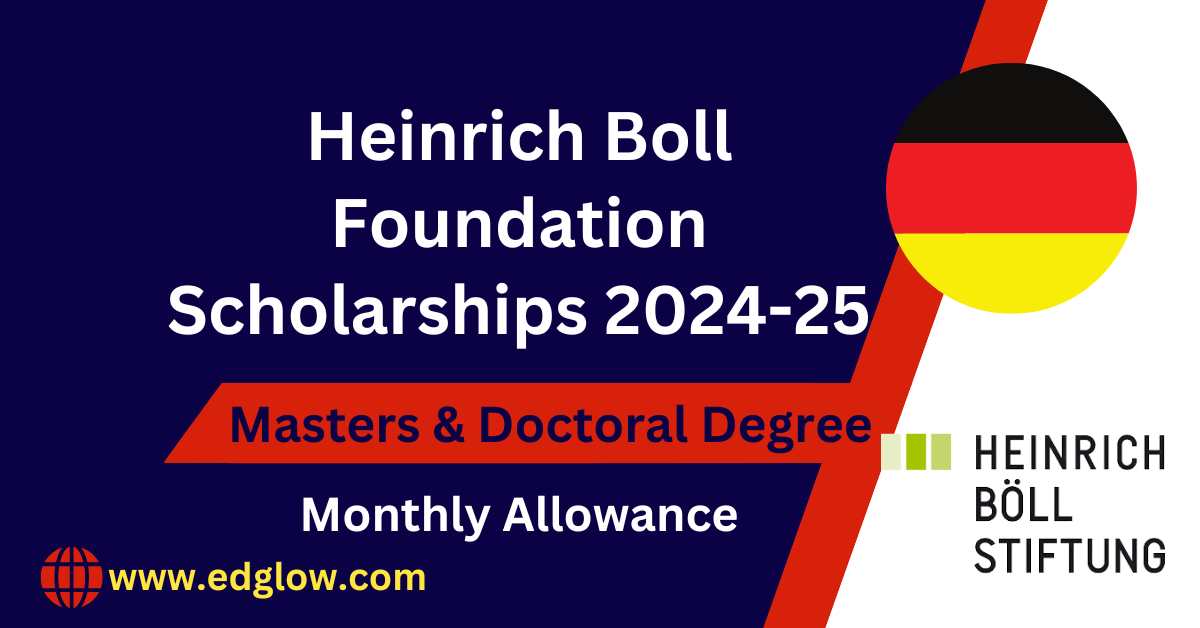Full description of Scholarship: offered/announced by University of Stuttgart and International Students are eligible for this scholarship to study in Germany. By this scholarship students are allows to study Masters level programm(s) in the field(s) of Infrastructure Planning taught at University of Stuttgart . The deadline/last date of applying for scholarship is 15th of February every year and this scholarship provide Fully Funded, Partial Funding to selected students.
The University of Stuttgart providing a golden chance to International Students to complete their studies in the field(s) of Infrastructure Planning at Germany on scholarship.
Short Detail of Scholarship:
Reimagining Infrastructure Planning for 21st-century Challenges
The University of Stuttgart stands as a beacon for aspiring infrastructure planners worldwide. Its Master’s Program Infrastructure Planning (MIP) is an illustrious initiative designed to groom future architects of infrastructure, poised to tackle the complexities of our era’s challenges. This comprehensive curriculum, delivered entirely in English, spans two immersive years, integrating ongoing research breakthroughs to keep students at the forefront of cutting-edge knowledge.
The Master’s Program Infrastructure Planning (MIP) at the University of Stuttgart redefines the approach to infrastructure planning for the contemporary world. It acknowledges that the challenges of the 21st century demand a dynamic, holistic, and sustainable perspective towards infrastructure. As such, the curriculum is tailored to equip future infrastructure architects with a comprehensive understanding of not just the technical aspects but also the socio-economic and environmental dimensions.
In this rapidly changing landscape, the MIP program in Germany emphasizes adaptability and innovation. It encourages students to think beyond conventional solutions, fostering a mindset that embraces emerging technologies, sustainable practices, and resilient infrastructure designs. This forward-thinking approach ensures that graduates are equipped to tackle not just current challenges but also to anticipate and address the evolving needs of society and the environment.
Moreover, the program recognizes the increasingly interconnected global nature of infrastructure. It prepares students to navigate the complexities of international collaborations and diverse cultural contexts. By instilling a global perspective, the University of Stuttgart’s MIP program creates graduates who are adept at working across borders, integrating diverse perspectives, and fostering sustainable infrastructure solutions that transcend geographical boundaries.
At its core, the MIP program aims to nurture leaders who can navigate the intricacies of 21st-century infrastructure challenges. It doesn’t just impart knowledge; it cultivates a mindset that fosters resilience, innovation, and ethical considerations in infrastructure planning. By encouraging students to envision infrastructure that meets the needs of today without compromising the needs of future generations, the program contributes to a more sustainable and equitable future.
Mastering Infrastructure Planning at the University of Stuttgart
The essence of mastering infrastructure planning at the University of Stuttgart lies in the fusion of academic excellence and practical application. The program’s interdisciplinary approach cultivates a multifaceted understanding of infrastructure intricacies. Students delve into a mosaic of disciplines encompassing urban development, hydraulic engineering, economics, and beyond. This diverse exposure fosters the ability to conceptualize, strategize, and implement solutions for real-world challenges.
Moreover, the program’s hands-on projects and collaborations with industry partners offer invaluable experiential learning. From participating in simulated urban planning scenarios to engaging in real infrastructure projects, students apply theoretical knowledge to practical settings, honing their problem-solving skills and decision-making abilities. This unique blend of theoretical grounding and practical experience prepares graduates not just to navigate the complexities of infrastructure but to innovate and adapt in a rapidly evolving global landscape.
Furthermore, the University of Stuttgart’s commitment to fostering a rich academic environment amplifies the learning experience. Students engage closely with distinguished faculty, leveraging their expertise and guidance. The university’s cutting-edge research facilities and access to international networks ensure that students are exposed to the latest advancements in the field. This nurturing ecosystem encourages critical thinking, innovation, and collaboration, empowering graduates to become forward-thinking leaders in the realm of infrastructure planning.
Elevating Careers with MIP at the University of Stuttgart
Completing the MIP program at the University of Stuttgart unlocks a spectrum of global opportunities for graduates. From roles as infrastructure planners in private sectors to consultancy and policy-making, they become versatile assets in navigating the complexities of infrastructure planning. Irrespective of nationality, the program warmly welcomes applicants, creating a multicultural learning environment that enriches the academic experience.
Moreover, the hands-on experience gained through collaborations with industry partners during the program primes graduates for immediate integration into the workforce. Armed with practical insights and theoretical expertise, they step into consultancy roles, governmental positions, or private sector jobs with confidence. The University of Stuttgart’s MIP alumni network further supports their career trajectory, providing connections, mentorship, and opportunities for continued professional growth, ensuring their lasting impact in the realm of infrastructure planning worldwide.
Degree Level: University of Stuttgart Master’s Program Infrastructure Planning (MIP), Study in Germany
The Master’s Program Infrastructure Planning (MIP) at the University of Stuttgart offers a comprehensive curriculum designed to equip students with a Master of Science (M.Sc.) degree. This esteemed two-year program is conducted entirely in English, welcoming students from diverse academic backgrounds to delve into the intricate realm of infrastructure planning. The M.Sc. qualification earned upon completion of the program signifies a robust academic achievement and a deep understanding of the multifaceted aspects of infrastructure planning.
The program covers an array of subjects pertinent to infrastructure planning, providing students with a broad spectrum of knowledge crucial for addressing contemporary challenges. Among the available subjects within the MIP curriculum are infrastructure planning, urban development, regional planning, hydraulic engineering, energy distribution, transportation networks, economics, ecology, and the social dimensions of spatial planning. This diverse range of subjects ensures that students acquire a holistic understanding of infrastructure planning, transcending traditional boundaries and encompassing various facets crucial for sustainable and resilient development.
Participants enrolled in the MIP program not only gain theoretical knowledge but also engage in practical applications across these subjects. Through a blend of academic lectures, workshops, and hands-on projects, students acquire practical insights into implementing infrastructure strategies, understanding their implications, and devising innovative solutions tailored to the complex challenges faced in today’s global landscape.
Eligibility Criteria
The eligibility criteria for the Master’s Program Infrastructure Planning (MIP) at the University of Stuttgart are structured to ensure a diverse yet focused cohort of students committed to excelling in the field of infrastructure planning. Prospective candidates targeted by the MIP program encompass a wide range of backgrounds, including civil engineers, architects, urban planners, and graduates from related fields seeking a comprehensive understanding of infrastructure planning in a broad, integrated context. This inclusive approach aims to bring together individuals with diverse perspectives, fostering a dynamic learning environment within the program.
Applicants aspiring to enroll in the MIP program should possess a robust academic background and demonstrate a keen interest in delving into the complexities of infrastructure planning. While the program welcomes applicants from varied academic disciplines, it prioritizes individuals who exhibit a genuine passion for developing insights into infrastructure planning on both local and global scales. The University of Stuttgart seeks candidates who are poised to leverage their academic foundation to contribute meaningfully to the discourse and practice of infrastructure planning, addressing contemporary challenges with innovative and sustainable solutions.
Furthermore, the MIP program is tailored for professionals or students seeking to broaden their horizons and delve deeper into infrastructure planning within a multidimensional context. Whether aiming to specialize as civil engineers, urban planners, or graduates seeking to prepare for international and complex planning tasks, the program provides a platform for individuals with a shared ambition to gain holistic insights into infrastructure planning and engage in forward-thinking strategies that cater to the needs of diverse communities.
Application Procedure
The application process for the Master’s Program Infrastructure Planning (MIP) at the University of Stuttgart is designed to ensure a comprehensive evaluation of prospective candidates. Applicants are required to submit their applications through the university’s dedicated online platform, known as “C@MPUS.” This intuitive system streamlines the application process, allowing candidates to provide essential details and upload the necessary documents accurately. (Here)
The application window for the MIP program typically opens from August 1st of the year preceding the start of studies and remains accessible until February 15th of the year when the studies commence. It’s imperative for applicants to meticulously adhere to these timelines to ensure their applications are considered for evaluation. Additionally, the university emphasizes the importance of submitting complete applications with all required documents uploaded correctly. Incomplete submissions may impact the evaluation process, potentially affecting the applicant’s chances for consideration in this competitive program.
Moreover, the University of Stuttgart’s application review process prioritizes merit, academic excellence, and a genuine passion for infrastructure planning. While academic transcripts and letters of recommendation are integral components of the application, the university values diverse perspectives and experiences. Applicants are encouraged to articulate their motivations, aspirations, and unique contributions they aim to bring to the program. This holistic approach allows the admissions committee to assess candidates not just based on academic achievements but also on their potential to thrive in the dynamic and collaborative environment that defines the MIP program.
Conclusion: Forging Leaders in Infrastructure Planning
The Master’s Program Infrastructure Planning (MIP) at the University of Stuttgart encapsulates more than just academic prowess; it nurtures leaders with a comprehensive understanding of infrastructure planning. Through a blend of academic excellence, practical application, and interdisciplinary learning, this program equips graduates to tackle the multifaceted challenges of modern infrastructure development.
The University of Stuttgart’s commitment to fostering a global, multicultural environment further enriches the academic journey of MIP students. The interaction with diverse minds and the guidance of experienced faculty and industry experts not only broadens perspectives but also instills a sense of global citizenship and collaboration – vital traits for future infrastructure leaders.
The impact of the MIP program extends far beyond the academic realm. Graduates emerge as catalysts for change, driving sustainable and resilient infrastructure initiatives across the globe. Their ability to integrate technical expertise with visionary leadership sets them apart in a world where infrastructure planning demands innovation, adaptability, and a deep understanding of societal, economic, and environmental impacts.
In essence, the University of Stuttgart’s Master’s Program Infrastructure Planning (MIP) isn’t just about shaping infrastructure architects; it’s about fostering leaders capable of redefining the future of global infrastructure.
FAQs
1. Who should apply for the MIP program at the University of Stuttgart?
The MIP program beckons civil engineers, architects, urban planners, and graduates from related fields aspiring for a holistic insight into infrastructure planning, gearing up to tackle global challenges.
2. What are the career prospects post MIP completion at the University of Stuttgart?
Graduates can explore career avenues spanning infrastructure planning across private and public sectors, consultancy roles, and policy-making, equipped to lead interdisciplinary teams.
3. How can applicants seek financial aid for the University of Stuttgart’s MIP program?
Applicants lacking self-funding options are encouraged to explore numerous international and German institutions offering financial support.
4. Is the University of Stuttgart’s MIP program open to international students?
Absolutely, the program warmly welcomes applicants from diverse nationalities, fostering a rich, multicultural learning environment.
5. How does one apply for the MIP program at the University of Stuttgart?
Prospective candidates can submit their applications online via the University of Stuttgart’s “C@MPUS” application system, ensuring all necessary documents are correctly uploaded.
6. What learning resources and facilities does the University of Stuttgart provide for MIP students?
The University of Stuttgart offers state-of-the-art infrastructure and well-equipped libraries, laboratories, and research centers catering to MIP students’ academic needs.
7. Are there opportunities for internships or industry collaborations during the MIP program at the University of Stuttgart?
Yes, the program facilitates internships and collaborations with industry partners to provide practical exposure and real-world experience to students.
8. What research initiatives or projects are MIP students involved in at the University of Stuttgart?
Students actively engage in ongoing research initiatives, working alongside faculty on projects aimed at addressing contemporary infrastructure challenges.
9. Can MIP graduates pursue further studies or specialized courses at the University of Stuttgart?
The university offers avenues for graduates to continue their academic journey through specialized courses or research programs aligned with their interests.
10. Does the University of Stuttgart offer networking opportunities for MIP students with alumni or industry experts?
Yes, the university organizes networking events, workshops, and seminars, facilitating connections between students, alumni, and industry professionals.
Requirements Criteria for Scholarship: Apply Accordingly for Scholarship:




